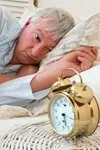Acupuncture may help Effexor users with insomnia related to depression
While Effexor and other antidepressants are often effective in many aspects of treating depression, they don't always treat all side effects of depression.
While Effexor and other antidepressants are often effective in many aspects of treating depression, they don't always treat all side effects of depression. According to one recent study by researchers at the University of Hong Kong and published in the June 2011 edition of Sleep, depressed people might benefit from acupuncture to reduce insomnia associated with major depressive disorder. In the study, individuals were given minimal acupuncture, electroacupuncture and a placebo for three sessions over the course of three weeks. Patients were asked to keep sleep diaries and measured on the Insomnia Severity Index and the Pittsburgh Sleep Quality Index. Those who had received minimal or electroacupuncture improved greatly on subjective sleep measures, compared to those treated with a placebo. The findings suggest that there is no difference between where on the body or how the needling is performed and that acupuncture is efficacious in treating depression-induced insomnia. Though this study showed sleep benefits, it did not show decreases in depression with the use of acupuncture, though other studies have. Other research Insomnia and depression Disruption in or lack of sleep are common in the U.S., especially among young people, signifying a potential risk factor for depression. According to the National Science Foundation's Sleep in America study in 2006, 73 percent of adolescents between 11 and 17 who had mood problems reported not getting enough sleep. There are also a few different types of sleep problems, including sleep onset insomnia - having trouble falling asleep - and sleep maintenance insomnia - difficulty falling asleep. Many of these occur with depression, but acupuncture can be an effective treatment for depression-related sleep difficulties. |
Toll-Free Tel : 1-877-278-5387
Toll-Free Fax: 1-877-278-5359
Toll-Free Fax: 1-877-703-3038
Toll-Free Fax: 1-877-703-3038




